Is new learning-to-read curriculum 'magic sauce' or just 'a better mousetrap?'
Students share why learning to read was a struggle in public school and how a new approach is working
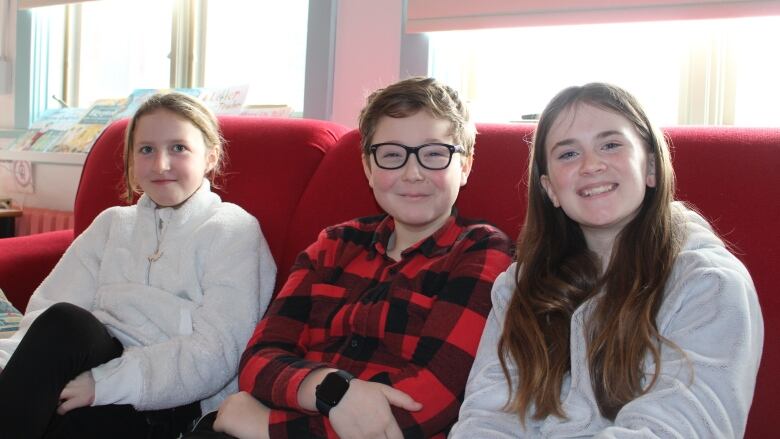
At Carter MacNeill's old school in Moncton, there were 42 students in his split class and two teachers.
With so many students, the 10-year old says,the teachers simply"couldn't help everyone in one day," and hewasn't learning to read.
"My mom realized that I was dyslexic during COVID, when there was no school, and I started getting home-schooled," he said. "She realized that I didn't know my sounds."
Carter is among the 16 students in Grades 2 to 6 now enrolled at Riverbend Community School, an independentschool in Riverview.
"I wouldn't get made fun of, but it didn't feel good at all," he said of his struggle to learn to readin public school.
Director and head teacher Rebecca Halliday began teaching literacy using what is known as the science of reading five years ago, and she and her students haven't looked back.
'I didn't feel like I was really smart enough'
The science of reading is a complete change from the "balanced literacy approach" that has long been used in New Brunswick classrooms.
Balanced literacy depends on surrounding students with books and reading in hopes they'll absorb the skills they need, but the science of reading uses explicit, structured lessons.
"A couple months ago I wasn't confident saying I could read but now I am. And I'm really happy to be at this school," said Carter.
In New Brunswick, early literacy scores have been poor for years.The latest test results show just 59.5 per cent of Grade 4 students reading at the desired level.
In September all kindergarten, Grade 1 and Grade 2 students in public schools will also make the switch to a science of reading curriculum. The program developed by the Department of Education is called Building Blocks of Reading.
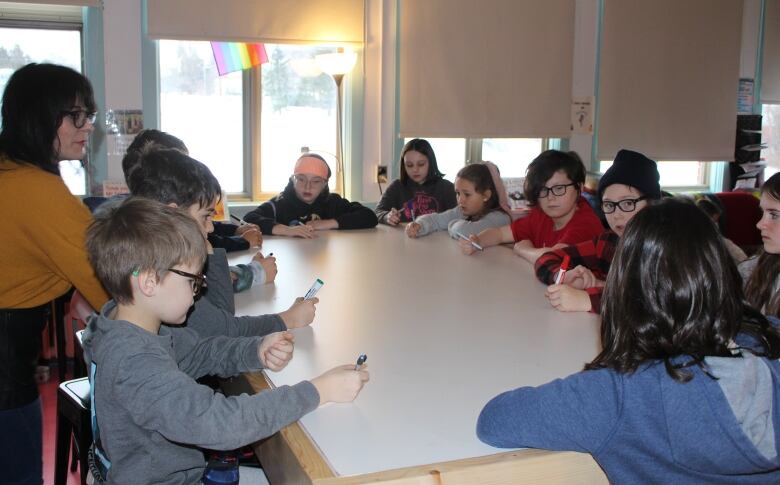
Ainsley Briggs, 10, recently left the immersion program in public school to attend Riverbend School.
Trying to learn to read in both English and French was difficult, she said, and she "wasn't the best in reading."
"And then my teacher had lots of kids in her class so it's hard for her to pay attention to every single kid that's not the best at reading," Ainsley said.
Being home during the pandemic only made her challenges worse. When she returned to class in Grade 3, she said, herparents kept asking teachers, "Is she going to get better at reading?"
Ainsley said the teacher replied, "Yea, it will come, it will come she's just a little behind."
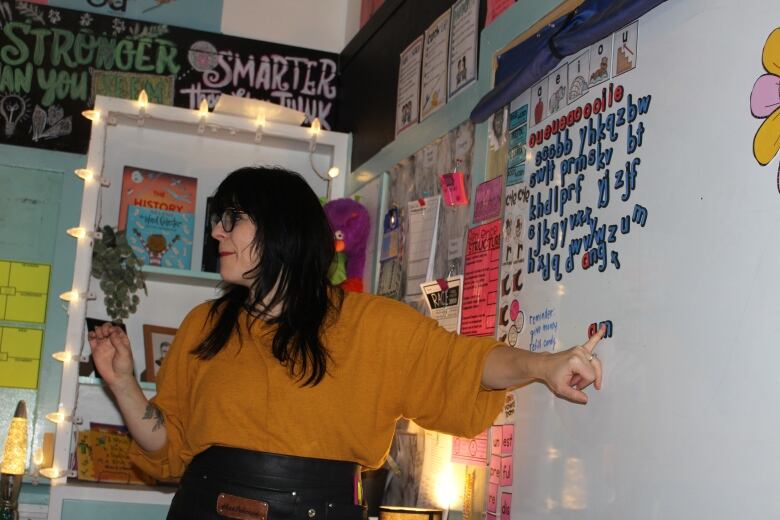
But Ainsley knew she was more than a little behind from the levelled books she was able read compared to the books her classmates were reading.
Balanced literacy uses levelled books that begin at A and become increasingly difficult, but struggling readers depend on pictures and memorization to be successful. In the new science of reading curriculum, decodable readers that focus on specific sounds replace them.
"I was at level E and my friend was at level K," Ainsley said. "Other people in Grade 4 were on level N, and it just made me feel a little bit disappointed because I was like, 'I'm trying my best and I just can't get better.'"
Kate Gautreau, 9, knows that feeling well.
"I was always behind in things," she said, "And I didn't feel like I was really smart enough."
TheEducation Department would not talk to CBC News about the program, but officials did answer questions from MLAs at the public accounts committee Jan 20.
Kimberly Bauer, director of learning and achievement, said the new science of reading curriculum will be rolled out to all schools in September.
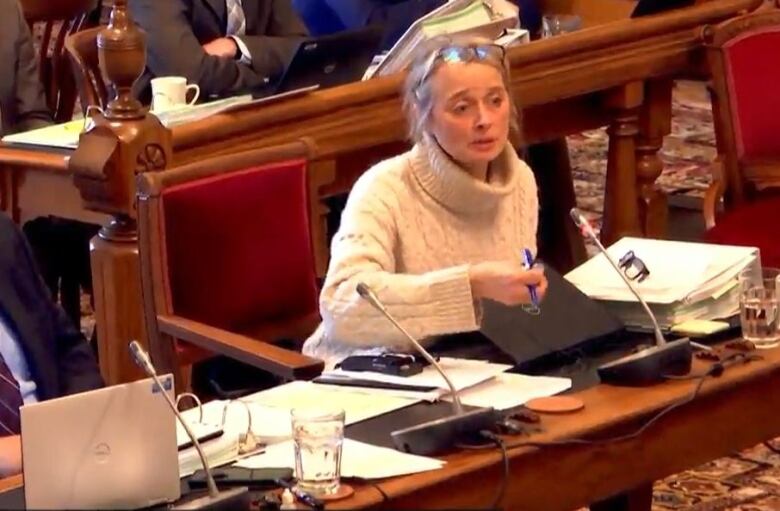
However, she said, some teachers and schools have already piloted the new approach and are seeing results.
MLA Andrea Anderson-Mason told the committee teachers in her riding of Fundy-The-Isles-Saint John West were way ahead of the change. In Blacks Harbour, she said, a group of teachers raised $10,000 on their own to pay for training in the new approach and for classroom materials.
Anderson-Mason asked Bauer for the results from a group of Saint John schools where the program was also piloted.
Bauer said about600 students were assessed in the 2021 school year and she outlined the results:
- Kindergarten: in September,two per cent were at grade level, in June,64 per cent were
- Grade 1: in September, 22 per cent were at grade level, in June, 97 per cent were
- Grade 2: in September, nine per cent were at grade level, in June, 90 per centwere
Anderson-Mason called the numbers "staggering."
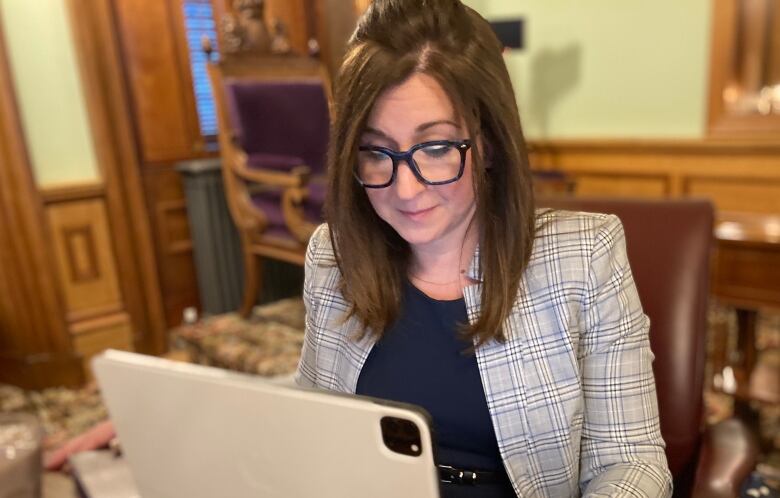
"And that is precisely why I feel that to allow this program to work its way through the province of New Brunswick is absolutely essential," she said. "We have finally figured out the magic sauce on how to teach kids to read you have teachers who are enthusiastic and are embracing it. Let's keep going."
Anderson-Mason is worried that moving ahead with a new French second language curriculum for all anglophone students in kindergarten and Grade 1 in September will slow the progress on the new literacy curriculum.
Is new program just 'a better mousetrap?'
In November, Child and Youth Advocate Kelly Lamrock said early literacy isone of the three challenges he wants to tackle.
Lamrock is a former minister of education and was behind the controversial decision to move the entry point for early immersion from Grade 1 to Grade 3. At the time, he argued it was the only way to combat streaming in schools, and to even out classroom composition so the makeup of the English program wasn't mostly struggling students.
Today, Lamrock still believes classroom composition is one of the biggest problems the education system is facing.
"It isn't acceptable to put all the kids who struggle and all the kids from poorer families and neighbourhoods in one class and then say, 'Well, let's just see what happens,'" he said. "You've got to have a plan to deal with classroom composition."

Lamrock points out that between 2010 and 2013 there was a bump in literacy achievement with about 80 per cent of New Brunswick students assessed in Grade 2 achieving the desired reading standard.
He said part of that success was that immersion wasn't offered until Grade 3, and the students therefore weren't being streamed in the earlier grades.
"You've got classes in Grade 1 and 2, where kids should be learning to read, where half the students have a significant kind of delay.Teachers are overwhelmed."
He said until the systemic problems, chief among themclassroom composition,are addressed, a new literacy curriculum won't matter.
"You could give a hockey player a shinier stick, but if you don't have the proper resources and training and coaching, they're not going to do well. And so sure, maybe somebody built a better mouse trap. The problem is if that becomes a panacea and we don't address the system in which that mouse trap is deployed then big deal."
'There is nothing more important'
Rebecca Halliday, however, bristled at the suggestion that the science of reading curriculum is just a better mousetrap.
She agreed that teachers need support and training, but said it is a scientifically proven way of teaching that she has seen work.
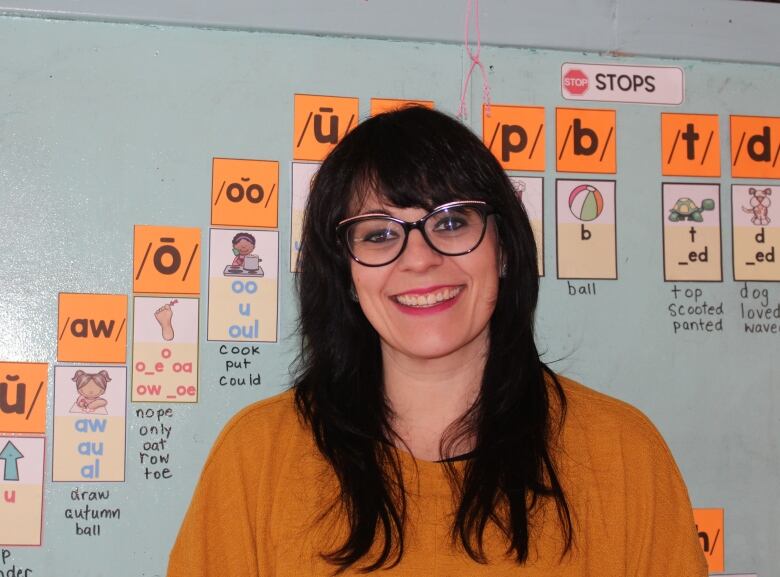
"The thing about the science of reading and this approach to teaching reading is it benefits all readers," Halliday said. "It benefits all readers, but it's the only way that dyslexic and struggling readers can learn to read."
For Halliday, literacy is a social justice issue. She wants parents to ask more questions about how their children are being taught to read and demand better from the public system.
"There is nothing more important than children learning to read, and we've kind of just gotten in this place that makes me furious that is, 'There's just a lot of kids that aren't going to learn to read.' That is horrific. That is unacceptable in my opinion."












_(720p).jpg)


 OFFICIAL HD MUSIC VIDEO.jpg)
.jpg)



























































































